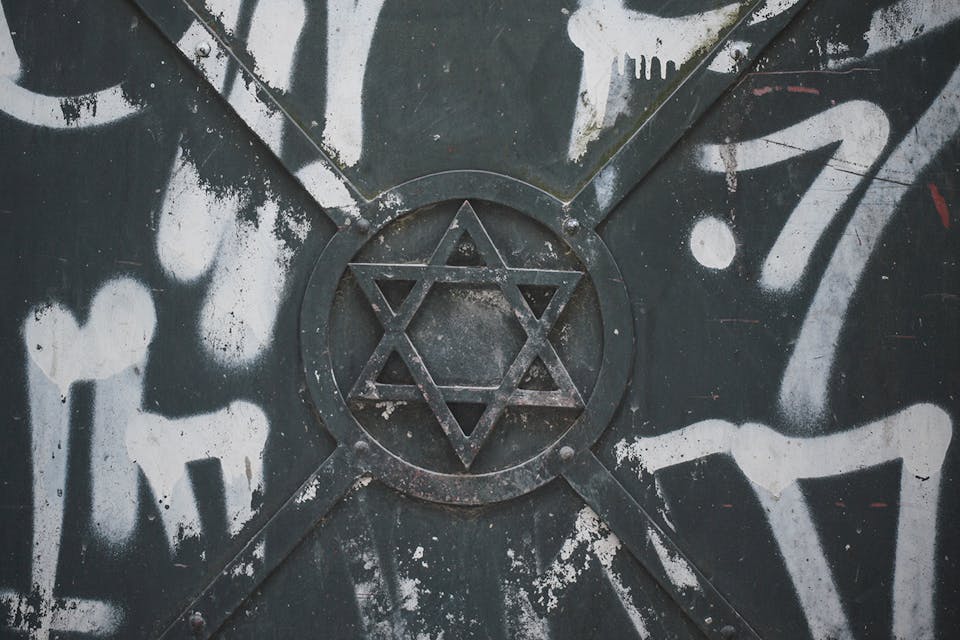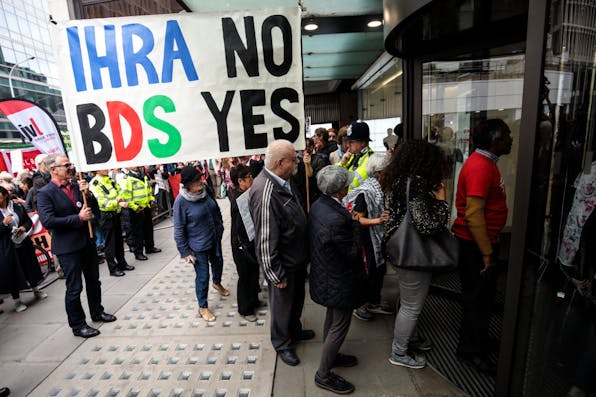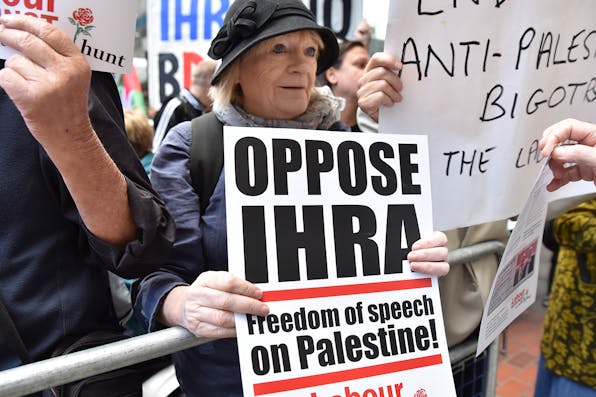
July 26, 2021
The IHRA Definition of Anti-Semitism Needs Updating, Not Replacing
It's already the best of the several definitions out there. And, by offering yet clearer guidance on the question of Zionism, it could get even stronger.
Many readers of Mosaic will be familiar with the old joke about the Jew stranded on a desert island who builds two synagogues: one where he will worship, and the other where he will never set foot under any circumstances. The joke is a gently self-deprecating reflection on the image—and in the wrong hands, unpleasant stereotype—of Jews as a quarrelsome people who will take their disputes to the most absurd degrees.
Something similar is happening regarding the real, and not especially funny, conversation about anti-Semitism. As Joshua Muravchik explains in his eloquent, persuasive essay, there are two competing definitions of anti-Semitism currently in circulation: the working definition of the International Holocaust Remembrance Alliance (IHRA), adopted in recent years by dozens of governments, voluntary associations, sports clubs, and other civic institutions, and its would-be rival, the Jerusalem Declaration on Anti-Semitism (JDA), penned by a group of left-wing and liberal Jewish academics who have declared “war,” as Muravchik puts it, on what they see as the IHRA definition’s overindulgence of Zionist and pro-Israel sensitivities.
If neither of those definitions appeals, there is a third, less well-known summation of what constitutes anti-Semitism currently doing the rounds. Drafted earlier this year by a committee of progressive Jews that includes the Obama administration’s former anti-Semitism envoy, Hannah Rosenthal, the Nexus Document on Israel and Anti-Semitism is divided into two sections—what is anti-Semitic and what isn’t—and it amounts to a wholly dissatisfying compromise between the IHRA and JDA definitions. The Nexus Document’s definition of what qualifies as anti-Semitic overlaps considerably with IHRA’s, listing as examples of anti-Semitism, inter alia, “indiscriminately blaming suffering and injustices around the world on a hidden Jewish conspiracy or of being the maligning hand of Israel or Zionism” and using “symbols and images that present all Jews as collectively guilty for the actions of the state of Israel.”
Responses to July ’s Essay

July 2021
I’d Rather Ask “How Do We Win the Struggle against Anti-Zionism?” Than “Is This Anti-Semitic?”
By Michael Walzer
July 2021
The IHRA Definition of Anti-Semitism Needs Updating, Not Replacing
By Ben Cohen
July 2021
Podcast: Kenneth Marcus on How the IHRA Definition of Anti-Semitism Helps the Government Protect Civil Rights
By Tikvah Podcast at Mosaic
July 2021
Anti-Semitic Acts Don’t Have to Involve Hatred of Jews
By Joshua Muravchik